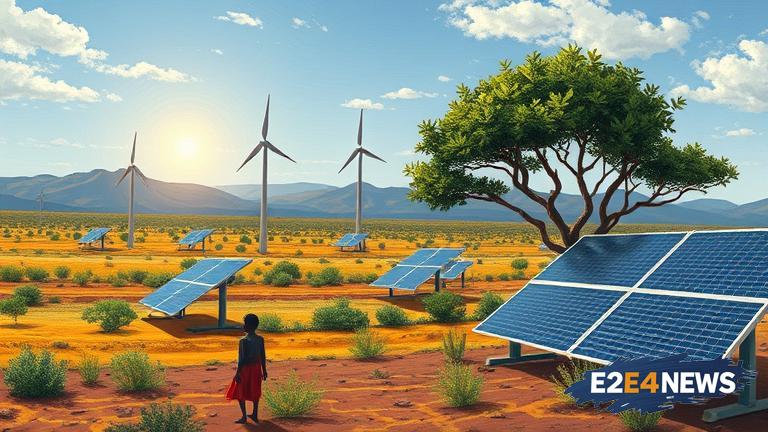The African continent is witnessing a significant shift towards renewable energy, driven by the need to address the pressing issues of energy access, climate change, and sustainable development. With many countries still struggling to provide reliable and affordable electricity to their citizens, renewable energy has emerged as a viable solution. Solar and wind power are leading the charge, with countries like South Africa, Egypt, and Morocco investing heavily in these sectors. The African Union’s ambitious goal of achieving 100% access to electricity by 2030 has further accelerated the adoption of renewable energy. Governments and private sector companies are working together to develop large-scale renewable energy projects, creating new opportunities for investment and job creation. The use of renewable energy is not only reducing greenhouse gas emissions but also improving air quality, enhancing energy security, and promoting economic growth. In addition, renewable energy is enabling African countries to leapfrog traditional fossil fuel-based power generation, embracing a cleaner and more sustainable energy future. The cost of renewable energy technologies has decreased dramatically over the years, making them more competitive with fossil fuels. This has led to a surge in demand for solar panels, wind turbines, and other renewable energy equipment. African countries are also exploring innovative financing models, such as green bonds and crowdfunding, to support the development of renewable energy projects. Furthermore, international organizations and development banks are providing significant funding and technical assistance to support the growth of renewable energy in Africa. The private sector is also playing a crucial role, with companies like Tesla, Vestas, and Siemens investing in African renewable energy markets. As the demand for renewable energy continues to grow, African countries are developing new policies and regulations to support the sector. This includes the creation of dedicated renewable energy agencies, feed-in tariffs, and tax incentives. The growth of renewable energy is also creating new opportunities for entrepreneurship and innovation, with start-ups and small businesses developing innovative solutions for off-grid energy access. In rural areas, renewable energy is enabling communities to access modern energy services, improving healthcare, education, and economic outcomes. The adoption of renewable energy is also reducing the burden on traditional energy sources, such as firewood and charcoal, which are major contributors to deforestation and land degradation. As the African continent continues to urbanize and industrialize, the demand for energy is expected to increase significantly, making renewable energy an essential component of the continent’s energy mix. In conclusion, Africa’s renewable energy revolution is gaining momentum, driven by a combination of factors, including government policies, private sector investment, and international support. As the continent continues to transition towards a low-carbon economy, renewable energy is expected to play an increasingly important role in promoting sustainable development, reducing poverty, and mitigating climate change.
